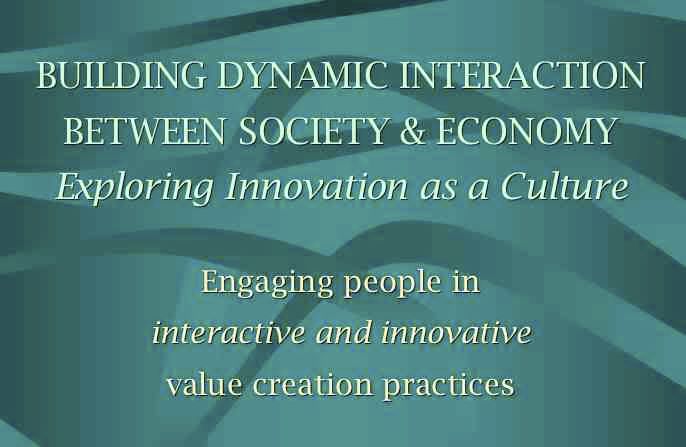Felix will be very happy with me. I've finally gotten a chance to write my review from the
Summit for the Future 2006.
Over two weeks ago, May 3-5th, I participated in
The Summit for the Future 2006 hosted by the
Club of Amsterdam. The theme was “Risk in Innovation and Global Growth”. I played
trendwatcher for the
Media stream and the
knowledge stream on Values & Spirituality. Throughout the conference, we had many opportunities to share in delicious conversations with people from all over the planet and from many different disciplines. We engaged in a wide range of approaches to the theme of risk.

Within the knowledge streams and break out sessions, we deepened our engagement with the theme of risk, sometimes even unexpectedly. This was very apparent in the media stream where I sat.
Jonathan Marks was moderator for the
Media stream. He had arranged a line of speakers that entertained us, informed us and shared their toys. There were two presentations that raised critical issues for us.
Eccky, the game, was the most provocative because it awakened our sense of parenthood and protective instincts on a deep and personal value level. We explored this questioning with a sense of real purpose, and
Yme Bosma responded with an openness and shared our concern. He also opened our eyes to other perspectives.
The real risk here is parental engagement. How willing are we to engage in the kind of discussion with our children that establishes acceptable parameters for their behavior? Because Microsoft is one of their investors, they are “American-izing” elements of the game for the moral driven American market. Isn’t that a risk as well?
 Marc Canter
Marc Canter raised a different set of issues regarding our digital identity. He was larger than life in his beautiful bright orange shirt, and so was his thinking. He challenged us to think about who is really accountable for how our identity gets managed online. Where does the authority, authentication, and the authorization lie? It certainly opens up the discussion about companies and software with an open source strategy versus those with protectionism strategies (like Microsoft). It should be user-permission driven -
but is it?During other presentations in the media stream, we looked at the impact on future business models. With the introduction of IP TV, will viewer participation begin to dictate content and programming, much like bloggers and social media have democratized publishing? No one really understands the real impact of social media, and yet they do understand that it is already changing the economy and the conventional business models.

The
knowledge stream on Values & Spirituality gave us an opportunity to experience an exchange in consciousness. Led by J
John Renesch and
Bill Liao, the discussion opened up dialogue about how we manifest our engagement with risk. It became obvious that the Dutch culture is driven by fear of risk on almost all levels. That opened a door into our personal cultures and the values that drive our behavior.
During the collective sessions during the Summit, we listened to sound bites from speakers and participants in the many knowledge streams. The real eye-opener was the disruptive behavior of interrupting the presentations with comments that people needed to share. Most of the speakers and participants accepted this with good nature and even welcomed the interaction it generated. The presentations and sessions became richer through a more interactive and less broadcast format.
I would like to see more follow up from events like this Summit. There should be a knowledge gardener and someone responsible for knitting the learnings together, sharing that and building something. What we really walked away with were new relationships or confirmations of older ones. I guess what people choose to do with that is their own
prerogative.











